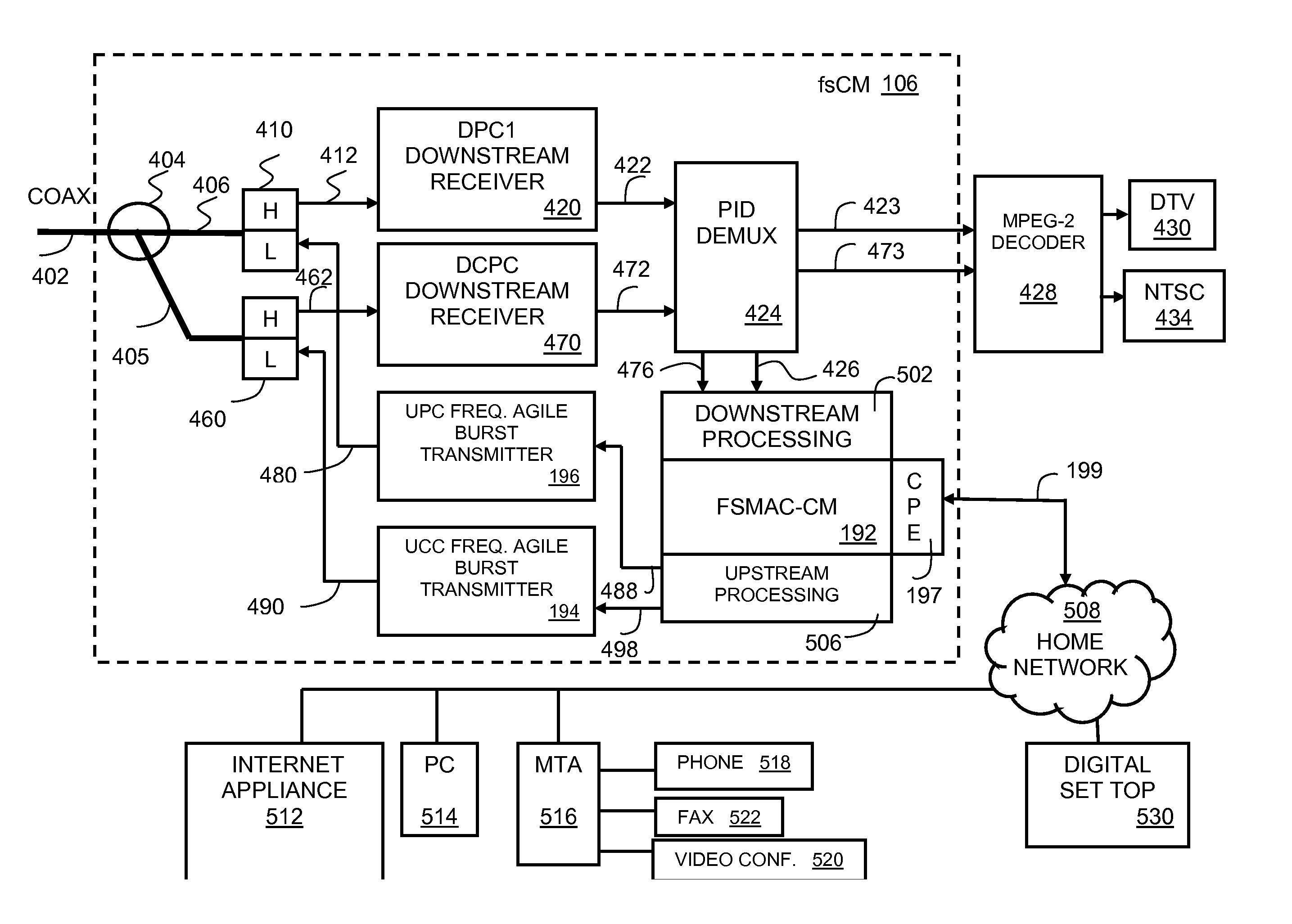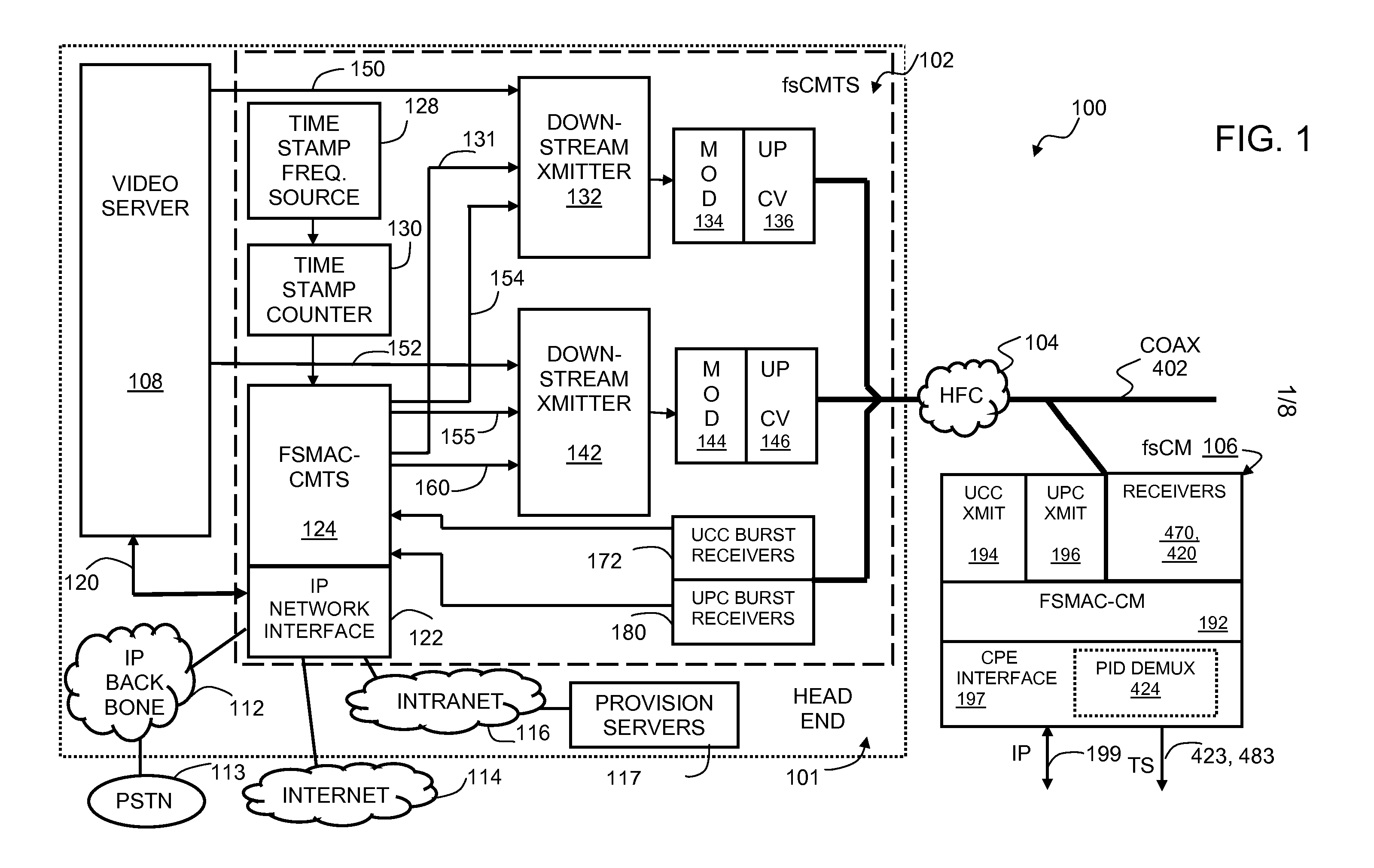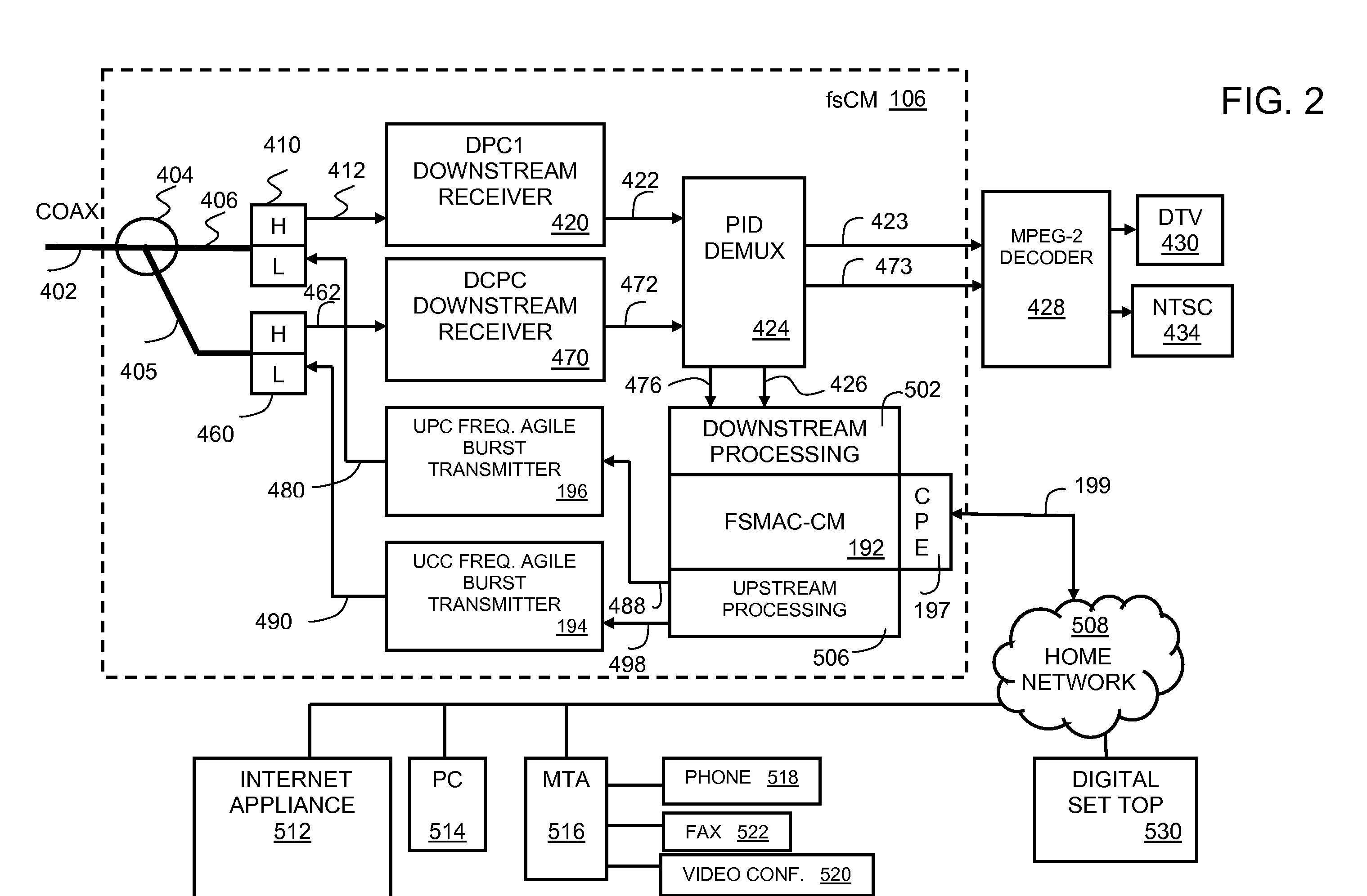Method and apparatus of downstream communication for a full-service cable modem system
a cable modem and downstream communication technology, applied in the field of last-mile broadband digital communications systems, can solve the problems of cable modems with severe limitations when it comes to supporting digital video services, inefficient overlaying services in terms of increasing the cost of operation and the cost of consumer ownership, and maximizing statistical multiplexing gain. , the effect of fast recovery
- Summary
- Abstract
- Description
- Claims
- Application Information
AI Technical Summary
Benefits of technology
Problems solved by technology
Method used
Image
Examples
Embodiment Construction
[0037] Refer to FIG. 1 for a preferred embodiment of a multi-channel fsCM system 100. An fsCMTS 102, typically located at a head end 101, is connected to the fiber-part of a two-way HFC network 104 through an electrical to fiber interface (not shown). A remotely located fsCM 106 is connected to a coax 402 part of the HFC 104. The downstream spectrum (typically 50 to 850 MHz) is divided into typically 6 MHz channels in the downstream for NTSC cable systems. The upstream spectrum typically ranges from 5 to 42 MHz in North America, and the upstream channel bandwidth varies typically from 160 KHz to 6.4 MHz. The architecture and topology of a modern two-way HFC cable plant are known in the art and will not be repeated here.
[0038] In this example, also referring to FIG. 3, there are two downstream channels: the downstream control and payload channel DCPC 147 and the downstream payload channel DPC1137, and the five upstream channels: the upstream control channels UCC1174, UCC2176, UCC317...
PUM
 Login to View More
Login to View More Abstract
Description
Claims
Application Information
 Login to View More
Login to View More - R&D
- Intellectual Property
- Life Sciences
- Materials
- Tech Scout
- Unparalleled Data Quality
- Higher Quality Content
- 60% Fewer Hallucinations
Browse by: Latest US Patents, China's latest patents, Technical Efficacy Thesaurus, Application Domain, Technology Topic, Popular Technical Reports.
© 2025 PatSnap. All rights reserved.Legal|Privacy policy|Modern Slavery Act Transparency Statement|Sitemap|About US| Contact US: help@patsnap.com



